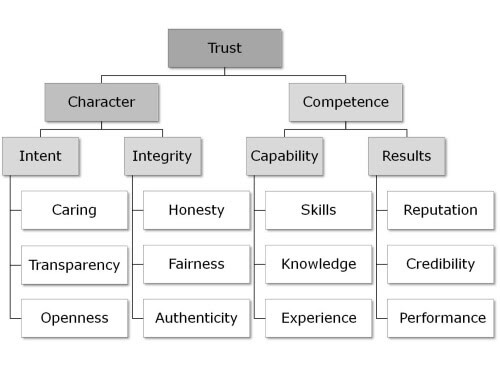
WANT CUSTOMERS TO LOVE YOU? START WITH BEING TRUSTWORTHY
Here’s an interesting headline:
“Bombshell report claims US ad agencies unethically pad their profits with secret rebate schemes.”
It reminded me of a story a staff member told me years ago. She had worked for a mega-agency before joining our firm, and one day her boss asked if she’d be interested in playing tennis with him over their lunch hour. Having played in college and hungry for opportunities to play again, she agreed.
After a rigorous match, they headed back to the office, and he instructed her to mark her time down as billable to one of their larger clients. He indicated they’d never know the difference. She was shocked at the request, but did as she was told – and felt guilty about it afterward.
When she told me the story, my first thought was, “And that’s exactly why companies need to work with smaller to mid-sized ad agencies!” But in reality, the problem was not the size of the agency. It was simply a character issue.
A 2015 Gallup Survey, Honesty/Ethics in Professions, showed that Nurses rated the very highest for honesty and ethical standards at 85%. Advertising Practitioners, on the other hand, were just below Stock Brokers at a measly 10%, and just above Car Salespeople, Telemarketers, Members of Congress and Lobbyists.
So why do so many professions struggle with trust?
To answer that question, let’s turn to the featured chart to understand what establishes trust in the first place.
Customers and clients trust companies because of character and competency. Those two attributes are established by a number of traits. In the bombshell report scenario, it wasn’t a competency issue that created a trust problem. Again, it was a character issue. Specifically, it was a lack of transparency. If they had all agreed beforehand that a specific portion of the fees for the agency services would come from media rebates, then there may not have been a problem. It was the “secret rebate schemes” – or lack of transparency – that created a character problem, and therefore, a lack of trust problem.
Even the structure under which most businesses operate would have sufficed. This is when the company sets the price for the product or service, and the client/customer determines whether or not they want to pay that price. How the company makes money becomes a lesser issue. It’s about “value,” and companies consistently offering a good value – no matter their income streams and profit margins – will undoubtedly build trust among their customers.
So what’s the takeaway from all of this?
Well, if you want a company and a brand that your customers can trust, some serious self-evaluation is always a good place to start.
- How can you improve the way you care for your customers?
- Can you look your colleagues in the eye and say with complete surety that your business practices are fair, transparent, and honest?
- How about your competency?
- Are you consistently improving your skills, your knowledge, and level of performance?
George MacDonald once said…
“To be trusted is a greater compliment than being loved.”
Are you trustworthy? If so, you’re likely on your way to being loved, too.





